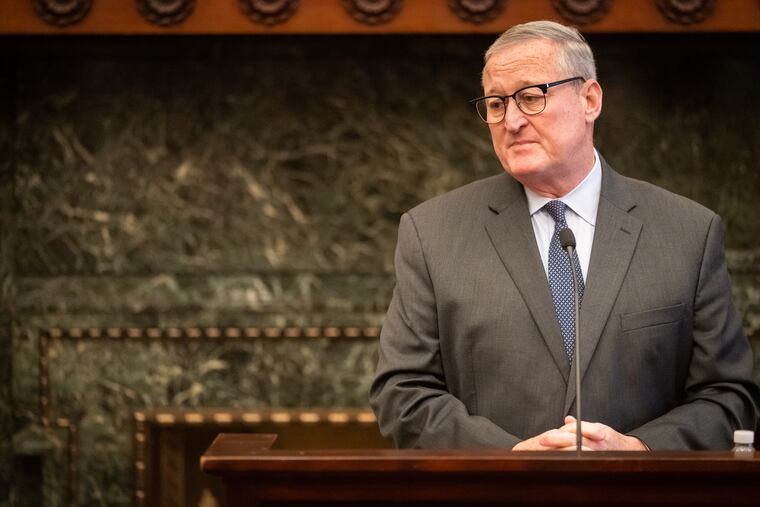Mayor Kenney could be burned out. We can help.
We need to activate our sense of compassion and stay engaged with our leaders, even — and perhaps especially — if we are frustrated or fed up with their performance.

“I don’t enjoy Fourth of July. I didn’t enjoy the Democratic National Convention, I didn’t enjoy the NFL draft. I’m waiting for something bad to happen all the time. I’ll be happy when I’m not mayor and I can enjoy some stuff.”
This quote from Mayor Jim Kenney reverberated throughout the city in the past week, and we’ve seen calls from residents and leaders that he should resign, along with others who defend the mayor, saying he was just being human.
As a psychologist, I saw one thing: burnout.
I don’t just see signs of burnout in Kenney — I am deeply concerned about burnout among many of our leaders, including elected officials, educators, health-care providers, activists, parents, and business owners. From my own clients, I hear an endless stream of ways that the authority figures in their lives lash out, fail to show up, or neglect their commitments.
» READ MORE: ‘I’m not a robot’: Philly mayor says he was frustrated and emotional when he said he’ll ‘be happy’ to not be mayor
Burnout is a medical diagnosis marked by emotional depletion and the perception that one has made little impact in their role. One key (but poorly understood) aspect is depersonalization, which refers to feeling disconnected from others, and experiencing intense hopelessness and cynicism.
To clarify: I am not treating Kenney, so I can’t officially diagnose him with burnout. But you don’t need to be a psychologist to understand why so many of our leaders may be feeling burnt out. The list of complex challenges facing them today is exhausting: skyrocketing gun violence, persistent inflation, a mental health crisis, racial injustice, and attracting and retaining employees, just to name a few.
Burnt-out leaders put us all at grave risk. They may make poor, impulsive decisions, or fail to take needed action. Foggy thinking and overwhelming emotions render it impossible to consider complex issues. Burnt-out leaders alienate the very people they need for ideas, support, and collaboration.
“Burnt-out leaders put us all at grave risk.”
So what can they do? People talk a lot about “self-care” for burnout, but for many, true self-care requires a long time away from your source of stress — which for most leaders, including our mayor, isn’t feasible.
To fight burnout, our leaders need our help.
Some may recoil at the idea of helping leaders overcome their burnout. I get it. Most of us are angry, tired, and burnt out ourselves. These leaders signed up for their roles willingly, have positions of power, and some are well compensated. But we need them to do their jobs and make changes that protect us and make our lives easier, so that we can manage our own burnout.
We need to activate our sense of compassion and stay engaged with our leaders, even — and perhaps especially — if we are frustrated or fed up with their performance.
By engaging with our leaders, we mitigate that depersonalization I mentioned earlier, reminding our leaders that they are not alone, and who they are working for. Social contact is critical for our feelings of belonging and contributes to our sense of hope. Research on activist and teacher burnout supports the idea that this type of outreach can give our leaders the fuel they need to keep going.
This can be as little as a simple text, phone call, email, social media post, or kind word to the leaders in your life, recognizing small wins, good decisions, or positive interactions.
When our leaders feel seen in their totality — not just all good or all bad — they are able to think more clearly, behave less defensively, and collaborate more effectively. The recognition itself is motivating for leaders, many of whom take on their roles because of their desire to positively impact others.
It’s not too late for our leaders to confront burnout and get the support they need. It’s certainly not too late for us to do what we can to support leaders in our community. And who knows — by doing so, we may add to our own sense of purpose, which will help protect us from burning out, too.
Keren Sofer is a psychologist in Philadelphia.